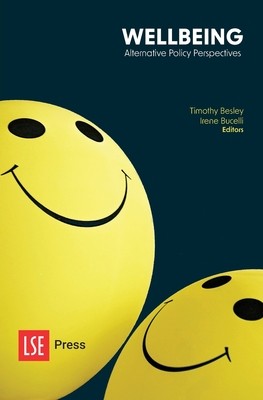
- We will send in 10–14 business days.
- Publisher: Ubiquity Press (London School of Economics)
- ISBN-10: 1909890820
- ISBN-13: 9781909890824
- Format: 13.3 x 20.3 x 1.1 cm, minkšti viršeliai
- Language: English
- SAVE -10% with code: EXTRA
Wellbeing (e-book) (used book) | bookbook.eu
Reviews
Description
Governments in liberal democracies pursue social welfare, but in many different ways. The wellbeing approach instead asks: why not focus directly on increasing measured human happiness? Why not try to improve people's overall quality of life, as it is subjectively seen by citizens themselves?
The radical implications of this stance include shifting attention to previously neglected areas (such as mental health and 'social infrastructure' services) and developing defensible measures of overall wellbeing or quality of life indicators. Can one 'master' concept of wellbeing work to create more holistic policy-making? Or should we stick with multiple metrics? These debates are well-developed in health policy-making and in alternative 'capabilities' approaches to assessing quality of life. Most recently, the connections between wellbeing and political participation have come into sharper focus.
Wellbeing remains a contested concept, one that can be interpreted and used differently, with consequences for how it is incorporated into policy decisions. By bringing together scholars from economics, psychology and behavioural science, philosophy and political science, the authors and editors of this short volume explore how different disciplinary approaches can contribute to the study of wellbeing and how this can shape policy priorities.
EXTRA 10 % discount with code: EXTRA
The promotion ends in 22d.07:53:07
The discount code is valid when purchasing from 10 €. Discounts do not stack.
- Publisher: Ubiquity Press (London School of Economics)
- ISBN-10: 1909890820
- ISBN-13: 9781909890824
- Format: 13.3 x 20.3 x 1.1 cm, minkšti viršeliai
- Language: English English
Governments in liberal democracies pursue social welfare, but in many different ways. The wellbeing approach instead asks: why not focus directly on increasing measured human happiness? Why not try to improve people's overall quality of life, as it is subjectively seen by citizens themselves?
The radical implications of this stance include shifting attention to previously neglected areas (such as mental health and 'social infrastructure' services) and developing defensible measures of overall wellbeing or quality of life indicators. Can one 'master' concept of wellbeing work to create more holistic policy-making? Or should we stick with multiple metrics? These debates are well-developed in health policy-making and in alternative 'capabilities' approaches to assessing quality of life. Most recently, the connections between wellbeing and political participation have come into sharper focus.
Wellbeing remains a contested concept, one that can be interpreted and used differently, with consequences for how it is incorporated into policy decisions. By bringing together scholars from economics, psychology and behavioural science, philosophy and political science, the authors and editors of this short volume explore how different disciplinary approaches can contribute to the study of wellbeing and how this can shape policy priorities.


Reviews